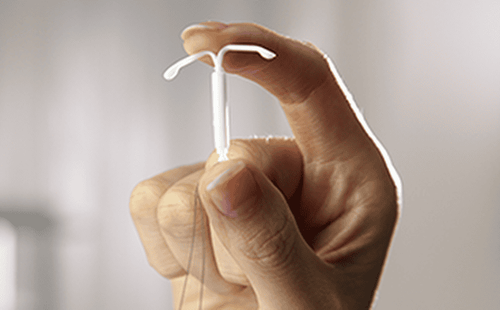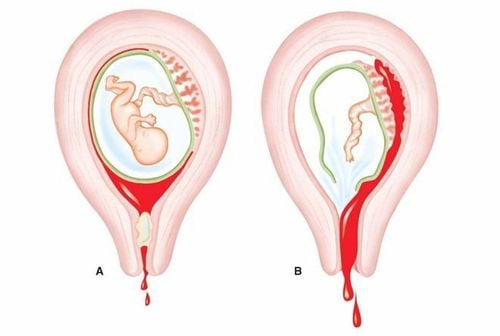This is an automatically translated article.
The article is professionally consulted by Master, Doctor Phung Thi Ly - Obstetrician and Gynecologist - Department of Obstetrics and Gynecology - Vinmec Times City International Hospital.Within two years after giving birth, women should not become pregnant again to avoid affecting the health of mother and baby. This means that mothers must use birth control after giving birth. But how to avoid pregnancy to be safe and effective? The following article will provide us with useful knowledge about postpartum contraception methods.
1. When to use birth control methods after giving birth?
After giving birth, women should abstain from sexual relations for about the first 6 weeks because this is the time to help the uterus recover, the perineum heals and especially the vaginal discharge. If you have a cesarean section, the recovery time from the abdominal incision will be longer, the abstinence period should be from 2 months or more.As soon as sex resumes, women should also use postpartum contraception. And it should be noted, even if you have not had your period, you still need to use birth control. Menstruation is a sign of restored ovulatory function, however the first ovulation is not necessarily after the first menstrual period, but can be before the onset of menstruation. Therefore, to ensure that there is no "getting pregnant" when there is no plan, women should apply contraception as soon as they have sex again.
Trắc nghiệm: Bạn đã biết cách tránh thai an toàn chưa?
Có rất nhiều biện pháp tránh thai an toàn nhưng không phải ai cũng biết được điều đó. Trả lời đúng những câu hỏi trắc nghiệm dưới đây chứng tỏ bạn có kiến thức tốt về các biện pháp ngừa thai an toàn.2. Why should you use birth control after giving birth?
Postpartum contraception will help women take the initiative in their childbirth such as taking the initiative in the time of childbirth, the distance as well as the number of children born. Birth control methods help mothers avoid obstetric complications and prevent sexually transmitted diseases. Thanks to not giving birth too thick, especially when the mother has not really recovered from the previous birth, it will limit the complications for the mother and the fetus.
3. Postpartum contraception
Currently with advanced science, there are many different methods of contraception that make mothers have more choices. Here are the pros, cons and side effects of some methods moms can refer to.
3.1. Condom
A condom, or penile condom, is placed over an erect penis and blocks semen from entering a woman's vagina, thereby preventing conception. This is the most common and effective method of contraception available today. This method not only prevents unwanted pregnancy but also avoids the transmission of sexually transmitted diseases. Currently, there are also female condoms, so women can actively use them when needed.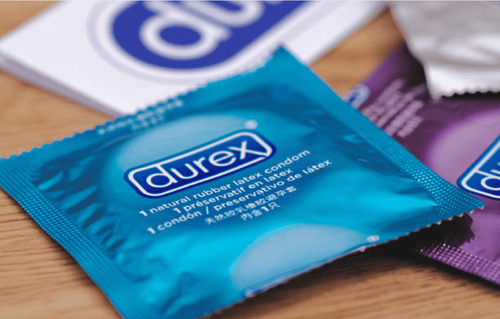
No side effects like when using drugs Effective use is about 98% Quite convenient, users can use it whenever needed Suitable for all ages, all types of situations Sex is the only method of birth control that can prevent some sexually transmitted diseases. Disadvantages of the method
Some people who are sensitive to latex may have a latex allergy Some people may not like using condoms because they feel uncomfortable. Condoms need to be stored properly, away from hot, humid places and direct sunlight. A storage time of more than 3 years can reduce the quality of the bag, making it easy to oxidize and tear easily. Therefore, it should be noted that when buying condoms, it is necessary to choose famous and reputable brands. Before buying, pay attention to the expiration date of the bag, check that the bag is intact.
3.2. Breastfeeding
This is an ancient natural method of birth control. When a mother breastfeeds, her blood levels of prolactin increase, which prevents ovulation. Therefore, it will be more difficult for women to get pregnant.
Advantages of the method
This is a completely natural method of birth control with no cost Absolutely no risks as well as side effects. Therefore, it is not harmful to women's health. Disadvantages of the method
Can only be applied to mothers in the first 6 months after giving birth Mothers must breastfeed their babies regularly and exclusively with breast milk Can only be applied when the mother has not had her period again because when she has A mother can conceive at any time.
3.3. Prevent pregnancy by calculating the day of ovulation
The menstrual cycle of a woman's menstrual cycle is usually 28-32 days. Then ovulation will fall around the 14th - 15th day of the cycle. Based on the day of ovulation, there are 3 times when the conception rate is different.Relatively safe time is the time from the first day of menstruation to the 7th day of the cycle. At this time, the egg is about to be released, while the sperm can live in the woman's body for 2-3 days and if the egg is released early, conception can still happen. Therefore, contraception at this time is only relative.
The time of high conception is the period starting from the 8th day, the 18th day of the cycle. This is the most fertile time because this is the time when the egg begins to ovulate, if you have sex without using any contraceptive method, the rate of conception and pregnancy is greater than 90%.
Absolutely safe time is the time from the 18th day of the menstrual cycle to the first day of the next period. At this time, because the egg is in the process of decomposition, preparing for the upcoming menstrual period, the possibility of conception will not occur. However, a girl can still get pregnant unexpectedly during this time because it is possible that the twin eggs are released but not at the same time.

Advantages of the method
Is one of the natural, popular, easy to apply, inexpensive birth control methods. Can be applied long-term, no time limit. Does not affect the health and fertility of women. Cons of method
Only highly effective for people with regular menstrual cycles. Not effective for irregular periods.
3.4. Method of placing the IUD
An IUD or IUD is a small T-shaped device that is placed inside the uterus to prevent an egg and sperm from meeting. There are two types of IUDs: hormonal IUDs that release progestin and have a shelf life of 3 to 5 years. Copper IUDs, on the other hand, release some copper into the uterus and have a shelf life of more than 10 years.
But note that after giving birth, women who want to use this method of contraception need to wait about 4-6 weeks for the uterus to recover, not having sex after giving birth can put the ring or put in right after menstruation reappears.
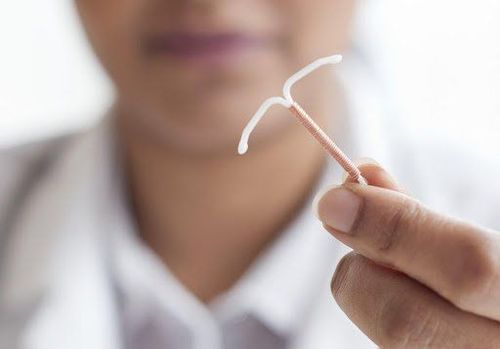
For women giving birth by cesarean section, an IUD should be inserted only when other methods of contraception cannot be used. You will have to wait more than 12 weeks after giving birth and after your first period after the cesarean section before having the IUD inserted. This is the time when the uterus has fully recovered.
Advantages of the method
Simple, inexpensive The effectiveness is quite high up to 98% Contraception period from 5-10 years. Does not cause pain, does not affect health as well as sex life. Women can be proactive in inserting and removing an IUD It is easy to get pregnant again after removing the IUD Cons of the method
Does not prevent sexually transmitted diseases. May cause bleeding in the first few cycles Some cases of IUD insertion will experience back pain, cervical spasms. For women who are not suitable for an IUD, the IUD can cause gynecological infections. In some cases, the IUD should not be inserted: When pregnancy is suspected, genital tract infection, postpartum endometritis, genital malignancy. Having an IUD makes these problems worse.
3.5. Method of using birth control pills
There are two types of birth control pills: daily contraception and emergency contraception.The daily oral contraceptive is a common type of birth control pill. Postpartum women should use birth control pills containing only progestin ingredients. Every day, the pill must be taken at exactly one hour to maintain the necessary hormones in the body to prevent ovulation. In addition, the drug also thins the lining of the uterus so that a fertilized egg cannot implant. In addition, the drug thickens the cervical mucus to prevent sperm from passing and reduces sperm movement in the fallopian tubes.
Emergency contraceptive pills are used in cases where men and women have just had sex but are not using any safe method of contraception. The Emergency Contraceptive Pill works like a daily pill, but it has a much higher content of progestin than the daily pill, so it stops ovulation immediately to prevent conception. pregnant.
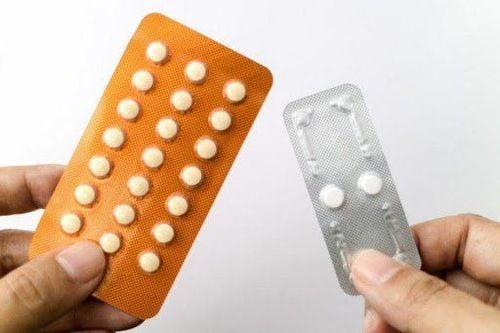
Advantages of the method
Does not affect sexual activity. Medications to help reduce menstrual bleeding or cause amenorrhea. Disadvantages of method
Contraceptive method is more inconvenient than other methods of contraception because it has to be taken daily and on time (For daily contraceptive pills) and taken within 72 hours after sex (For oral contraceptives). emergency contraceptive pills) Using progestin-only birth control pills can experience side effects such as headache, vomiting and breast pain, weight gain, weight loss... Do not use for people who are suffering from breast cancer , have a history of breast cancer, or have certain medical conditions. Can't prevent ectopic pregnancy
3.6. Contraceptive implant
Flexible contraceptive implant, about the size of a matchstick, is implanted under the skin of a woman's arm after giving birth. The implant releases progestin into the body to prevent ovulation and can be used for up to 3 years.
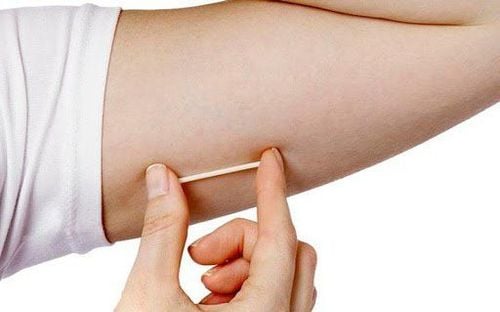
Advantages of the method
Contraceptive effectiveness is as high as 99.9% Can be effective for different birth control methods for 3 years The ability to get pregnant again quickly No effect on health, sex life No supplements Add other methods of contraception Can be used by nursing mothers, people with uterine fibroids, cardiovascular disease... Disadvantages of the method
When using the implant, you may experience some side effects such as: headache, dizziness, breast tenderness, acne, vaginal dryness... Other side effects such as menorrhagia, in many cases after 1 year often cause amenorrhea. However, in order to use contraceptive implant safely and effectively, it is best for women to go to reputable medical facilities and addresses to be checked and consulted by doctors to see if they are suitable. suitable or not, avoid unwanted side effects occurring
3.7. Spermicidal drugs
Spermicide comes in a variety of dosage forms such as cream, gel, foam, film, and suppository. The medicine is placed deep into the vagina, near the cervix. It contains nonoxynol-9, a chemical that kills sperm.Advantages of the method: This method is quite convenient, inexpensive and easy to use
Cons of the method
Contraceptive effectiveness is not high if not combined with other methods of contraception. irritant Genital tract infections are not prevented.
3.8. Sterilization method
This is a permanent method of birth control. Female sterilization is performed by blocking the fallopian tubes. Male sterilization is performed by vasectomy. It takes about 2 to 4 months for sperm to remain after a vasectomy.
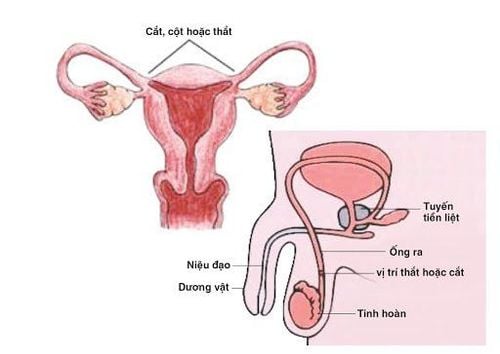
Effectively completely prevent pregnancy The procedure is simple, safe, and does not affect health. Cons of the method: Can't get pregnant again.
Besides, just like the method of birth control implant, you need to go to a hospital or a reputable medical facility to perform this procedure to avoid unwanted effects.
Each method of contraception has certain advantages and disadvantages. So one method may work for one person but not for another. Depending on the health status and circumstances of each person, it is advisable to choose the most suitable method of postpartum contraception. When using, if there are signs of prolonged side effects or there are many unusual signs in the body such as "private" skin allergies (itchy rash, red blisters, itching, more serious may be possible. causes heart palpitations, fatigue and inability to have intercourse...), dry "private areas" (because birth control pills inhibit ovulation and affect the ability to form natural sex hormones), migraine, severe mood swings, irregular menstrual bleeding, etc., you should pay attention to follow up and go to the doctor for advice on choosing a better contraceptive method, avoiding long-term causes. adverse effects on health.
If there is a need for consultation and examination at the Hospitals of the National Health System, please book an appointment on the website to be served.
Please dial HOTLINE for more information or register for an appointment HERE. Download MyVinmec app to make appointments faster and to manage your bookings easily.






